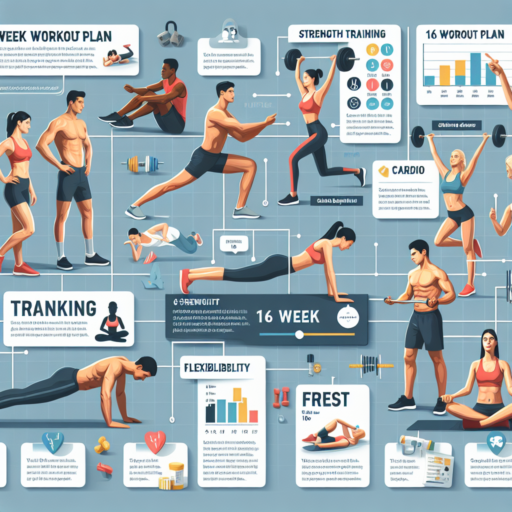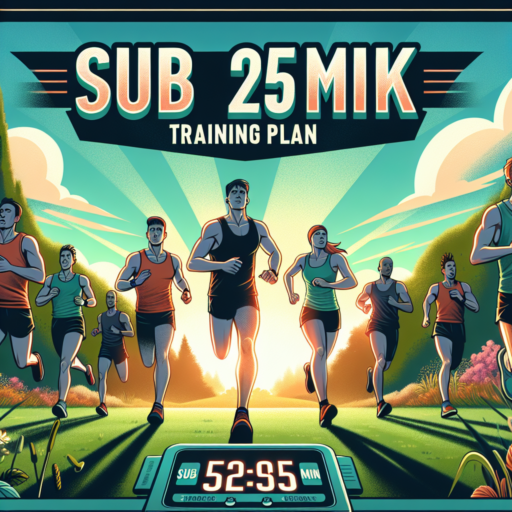Can you train for a 10K in 6 weeks?
Embarking on the challenge to train for a 10K in 6 weeks is entirely feasible, provided you have a base level of fitness and are ready to commit to a structured training plan. For beginners and those relatively new to running, this period serves as a crucial timeframe to build endurance, improve speed, and prepare the body for the rigors of covering 10 kilometers on race day. However, it’s essential to approach this goal with realistic expectations and a focus on gradual progression to avoid the risks of overtraining or injury.
To start, assessing your current fitness level is vital. If you’re able to run or jog for at least 20 to 30 minutes without stopping, you’re likely in a good position to start training for a 10K. From there, incorporating a mix of running workouts, strength training, and rest days into your 6-week plan can help you prepare effectively. A balanced training schedule might include three to four run days, two strength training sessions, and at least one or two rest days each week to allow for optimal recovery and muscle repair.
Variety in your training regimen is also key. Alternating between longer, steady-state runs, interval training for speed enhancement, and shorter, recovery-focused jogs can offer the body the diverse stimuli it needs to adapt and improve. Adding in at least one long run each week that gradually increases in distance can help build the endurance necessary to complete a 10K. Listening to your body and adjusting intensity and volume as needed can make a significant difference in your training outcome.
How quickly can you train for 10K?
The duration it takes to train for a 10K race can significantly differ based on several critical factors including your current fitness level, running background, and personal goals. For complete beginners, embarking on a training journey might seem daunting, but with a tailored plan, it’s feasible to prepare within 8 to 12 weeks. It’s important to consider that this timeline is not one-size-fits-all. Experienced runners with a good mileage base may find themselves competition-ready in a shorter span, potentially 4 to 6 weeks.
Understanding Your Fitness Level is crucial in setting a realistic training timeline. If you’re starting from scratch, the focus should be on building endurance gradually, mixing running with walking if necessary. On the other hand, if you’re an active individual who participates in other forms of cardio, you may have a head start. In such cases, acclimatizing your body to the specific demands of running a 10K might require less time, focusing more on improving pace and extending running distances safely.
Setting a Goal for Your 10K is equally important. Are you looking to simply finish the race, or are you aiming for a personal best? Your ambitions can significantly affect how you structure your training. For those eyeing a competitive time, incorporating speed work and interval training becomes essential, on top of the regular endurance runs. Conversely, if completing the race is your main objective, a balanced approach with a greater emphasis on consistent, injury-free running might be your best bet.
Is it possible to train for a 10K in a month?
Many aspiring runners often ask, «Is it possible to train for a 10K in a month?» The answer isn’t a straightforward yes or no, as it largely depends on your current fitness level, running experience, and commitment to training. If you’re starting from a base where you’re already comfortably running short distances, then ramping up to a 10K within a month could be achievable with a focused and structured training plan. Conversely, for complete beginners, this timeline might be challenging and could increase the risk of injury.
Training for a 10K race in just four weeks requires a carefully crafted approach. Initially, it’s critical to assess your current running ability. For those who can run at least 3 to 4 kilometers without stopping, a condensed 10K training program can be tailored to increase endurance gradually, focusing on pushing the distance a bit further each run. Incorporating a mix of long runs, short runs, and interval training not only keeps the regimen interesting but also effectively boosts cardiovascular health and stamina.
Moreover, rest and recovery play an indispensable role in a condensed training schedule. Balancing hard training days with easier, low-intensity workouts or complete rest is vital to prevent overuse injuries. Listening to your body is paramount; pushing through pain is a recipe for setbacks. Supplementing running with strength training and flexibility exercises can also fortify your body against the demands of increased activity and promote muscle recovery.
No se han encontrado productos.
Can I train for a 10K in 7 weeks?
Embarking on a journey to train for a 10K might seem daunting at first, especially with a tight timeframe of just 7 weeks. However, with the right strategy and mindset, achieving this goal is entirely within the realm of possibility. The key lies in understanding the demands of such an endeavor and meticulously structuring your training plan to optimize performance while minimizing the risk of injury.
Assessing Your Starting Point is crucial when planning your 7-week 10K training. It’s essential to gauge your current fitness level, running experience, and any potential limitations. Beginners will have a different approach, focusing more on building endurance, while experienced runners might concentrate on improving speed and stamina. Identifying your baseline allows for a tailored training program that progressively builds up to the 10K distance, ensuring each week is a step forward in your physical conditioning.
Incorporating Variety in Your Training is imperative for a well-rounded preparation. A mix of long runs, interval training, recovery days, and strength training sessions should be part of your weekly plan. This not only helps in improving your running efficiency and endurance but also in preventing overuse injuries. Planning your training days, with a clear understanding of the purpose behind each type of workout, will keep you motivated and on track towards your goal.




